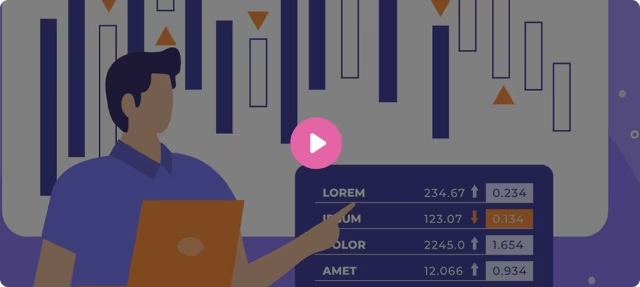 (1).png)

How Does the Commodities Market Work in Pakistan?
The commodities market in Pakistan plays a crucial role in the country’s economic framework by offering a structured and regulated platform where raw materials and essential goods can be traded efficiently. While global commodity markets span across countries and continents, Pakistan’s market operates through its national exchange, Pakistan Mercantile Exchange (PMEX), which allows individuals, institutions, and businesses to participate in futures trading of commodities like gold, silver, crude oil, cotton, and wheat.
Understanding how this market functions locally is essential not just for traders and investors but also for businesses that are exposed to commodity price fluctuations. This chapter breaks down the structure, participants, instruments, and dynamics of Pakistan’s commodity market.
Overview of the Pakistani Commodities Market
The commodities market in Pakistan is primarily futures-based, facilitated by PMEX, the country’s first and only multi-commodity futures exchange. Unlike physical spot markets, which deal with immediate delivery, PMEX enables electronic trading of standardized futures contracts with cash settlement or delivery on a future date.
Launched in 2007 and regulated by the Securities and Exchange Commission of Pakistan (SECP), PMEX offers investors a chance to:
- Hedge against price volatility
- Diversify investment portfolios
- Speculate on price movements
- Gain exposure to global commodity prices
The exchange operates 22 hours a day, six days a week, through an advanced online trading platform, most commonly MetaTrader 5 (MT5).
Key Commodities Traded at PMEX
- Precious Metals: Gold, Silver (in standard, mini, and micro contracts)
- Energy: Crude Oil, Brent Oil
- Agricultural Commodities: Cotton, Wheat, Rice
- Financial Instruments: Currency pairs and indices (recent additions)
Example: A Karachi-based jeweler can trade micro gold contracts to hedge against rupee depreciation, while a textile exporter in Faisalabad might use cotton futures to lock in prices and manage procurement costs.
How Trading Works in Pakistan’s Commodity Market
Here’s a breakdown of how the process works for an investor or trader looking to participate in the PMEX commodity market:
- 1. Account Opening with a PMEX-Registered Broker
- Choose a licensed broker such as Azee Securities.
- Complete KYC, documentation, and compliance checks.
- 2. Understanding Contract Specifications
- Each commodity has predefined lot sizes, tick values, expiry dates, and margin requirements.
- Example: A mini gold contract might represent 10 grams of gold with a 5–10% margin.
- 3. Funding and Margin Requirements
- Traders deposit a margin—a small percentage of the contract value.
- Leverage allows participants to control large positions with limited capital.
- 4. Placing Trades
- Trades are placed via online platforms like MT5 or broker-assisted terminals.
- Order types include market, limit, stop-loss, and take-profit orders.
- 5. Monitoring Positions and Risk Management
- PMEX provides real-time risk monitoring tools.
- Traders can set up automated stop-losses to control downside risk.
- 6. Contract Expiry or Settlement
- Most contracts are cash-settled, but some allow physical delivery.
- Traders can either square off their position or roll it over before expiry.
Key Participants in Pakistan’s Commodity Market
Understanding who is involved gives insight into how the market operates:
- Retail Traders: Individuals looking to profit from short-term price movements.
- Hedgers: Businesses and producers managing risk (e.g., exporters, manufacturers).
- Institutional Investors: Mutual funds, corporations, and banks with large-scale commodity exposure.
- Speculators: Traders who try to benefit from price direction without physical ownership.
- Brokers: Licensed intermediaries like Azee Securities that provide access, platforms, and advisory services.
The Role of PMEX and SECP
- PMEX ensures transparency, real-time price discovery, and market efficiency through standardization and surveillance.
- SECP acts as the regulatory authority overseeing trading practices, risk frameworks, and investor protection.
Both institutions work together to build trust and confidence in the system, aligning Pakistan’s commodity ecosystem with international standards.
Link Between Commodities and the Broader Economy
- Inflation: Rising prices of wheat, sugar, and oil directly impact consumer costs.
- Trade Balance: Commodities form a large share of imports and exports.
- Rupee Value: Commodity imports affect demand for foreign currency.
For example, fluctuations in global crude oil prices impact petrol rates in Pakistan, which in turn influence inflation and household spending.
Trading Psychology in the Pakistani Context
- Stick to predefined strategies and avoid emotional decisions.
- Use proper risk management and avoid over-leveraging.
- Follow both global news (e.g., OPEC decisions, crop reports) and local developments (e.g., budget announcements, currency shifts).
- Learn from past trades and constantly refine their techniques.
Quick Recap
- Pakistan’s commodities market operates through PMEX, offering futures contracts in metals, energy, and agricultural goods.
- Investors can trade using margin-based accounts via brokers like Azee Securities on platforms like MT5.
- Trading involves understanding contract specs, funding margins, placing orders, and monitoring positions.
- Key participants include retail investors, businesses, speculators, and hedgers.
- PMEX and SECP ensure transparency, security, and regulatory oversight.
- Commodities are deeply connected to inflation, currency value, and economic growth in Pakistan.
- Successful traders rely on strong trading psychology, strategy, and risk control.
Get Started with Azee Securities
Ready to start your investment journey with Azee Securities? Open a Stock Trading Account and gain access to the Pakistan Mercantile Exchange (PMEX). Let Azee Securities help you make informed decisions. Our expert advisors, advanced trading platform, and real-time market data ensure you stay ahead of the curve.
Azee Securities Limited
Member Pakistan Stock Exchange | PMEX | NCCPL | CDC
SECP Registered & Regulated